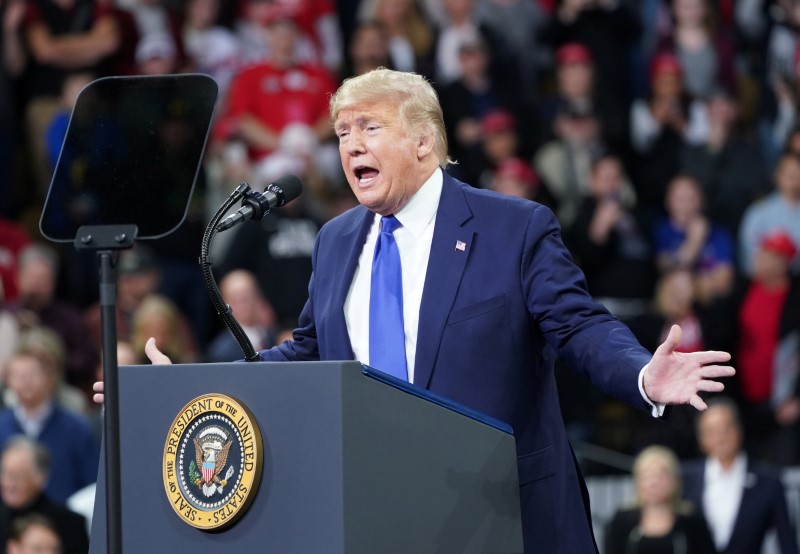By Jan Wolfe
WASHINGTON (Reuters) - The U.S. Senate's impeachment trial of President Donald Trump will begin in earnest on Tuesday, when senators may begin hearing opening statements on why he should be removed from office.
While senators will serve as jurors, legal experts say an impeachment trial will look fundamentally different from a U.S. criminal proceeding. Here are the reasons why.
HOW DOES AN IMPEACHMENT TRIAL WORK?
In an impeachment investigation, the House of Representatives functions like a prosecutor’s office. If the chamber charges a president with committing impeachable offenses, a group of House members presents evidence of wrongdoing during a trial before the Senate, which acts as a jury in deciding whether the president should be removed from office.
Historically, presidents facing impeachment trials have been granted protections similar to those that defendants receive in criminal cases, such as the right to have a lawyer present and request witness testimony. But legal experts say impeachment trials were never intended to be conducted like criminal cases.
In a 1974 report, the House Judiciary Committee said impeachment was a remedial process, rather than a punitive one.
“Impeachment and the criminal law serve fundamentally different purposes,” the report stated. “The purpose of impeachment is not personal punishment; its function is primarily to maintain constitutional government.”
DO SENATORS NEED TO BE IMPARTIAL?
Jurors in criminal cases are required to be fair and not prejudge a case.
Similarly, under the U.S. Constitution and Senate rules, senators take an oath and swear they will be impartial. But as a practical matter, senators can declare their allegiance before trial and cannot be disqualified for bias, said Frank Bowman, an impeachment scholar at the University of Missouri School of Law.
“You can imagine what a mess the trial would be if disqualification motions would be entertained. Everybody would be moving to disqualify everybody, and then the question would be what body decides such a motion,” Bowman said.
IS HEARSAY EVIDENCE ALLOWED?
U.S. law restricts what evidence is admissible in a criminal case. The complex rules limit the use of “hearsay,” or secondhand information.
Such evidentiary rules do not apply to impeachment.
Republican lawmakers have criticized the case against Trump as a political exercise based on hearsay, saying it was based on testimony from current and former administration officials who never spoke directly to Trump and therefore lack credibility.
U.S. Chief Justice John Roberts, who is overseeing the proceedings, could conceivably block evidence from being used in the Senate trial on the grounds that it is irrelevant or hearsay, but such a determination could be overturned by a majority vote of the Senate, legal experts said.
Roberts does not want to be seen as partisan, so he will likely “tread very carefully” and let senators make important decisions, Bowman said.
WHAT IS THE STANDARD OF PROOF?
Jurors in criminal cases are instructed not to convict a defendant unless there is proof of guilt beyond a reasonable doubt. But there is no formal standard of proof in impeachment proceedings, said Jessica Levinson, a professor at Loyola Law School in Los Angeles.
“One would think there is an answer to this basic procedural question, but there is not,” Levinson said.
Jurors in criminal cases are asked to make factual determinations, Bowman said. Senators, on the other hand, are making both factual determinations and political judgments, making it difficult to set a standard of proof, he said.
HOW MANY SENATORS MUST VOTE TO CONVICT?
Under the U.S. Constitution, a two-thirds vote of the Senate is required to convict the president. That differs from most criminal trials, where juries must reach a unanimous verdict.
